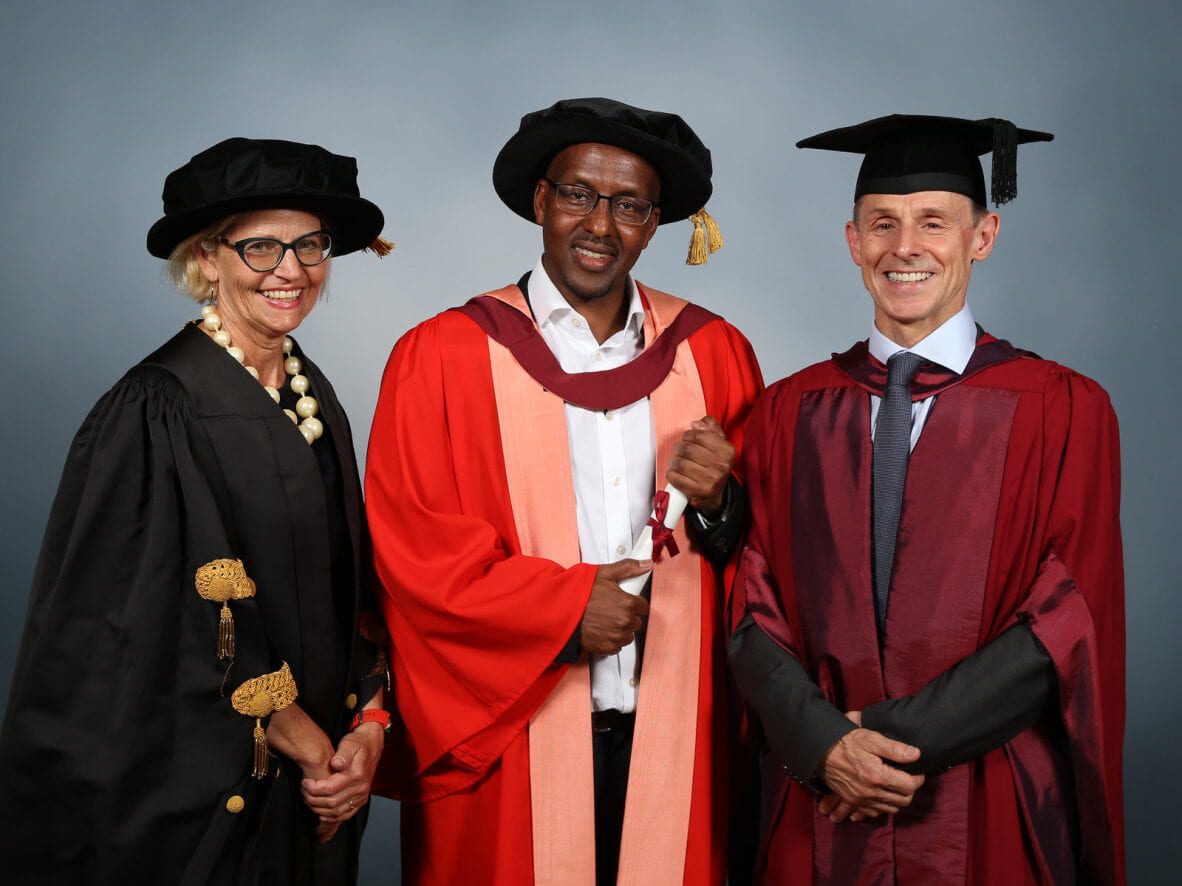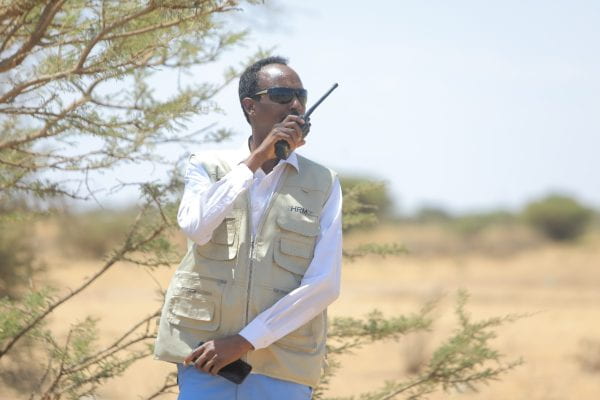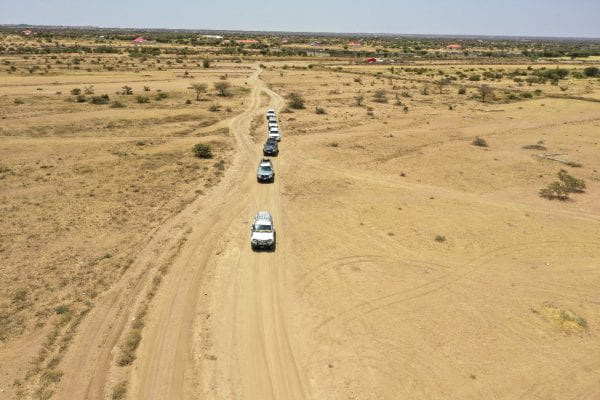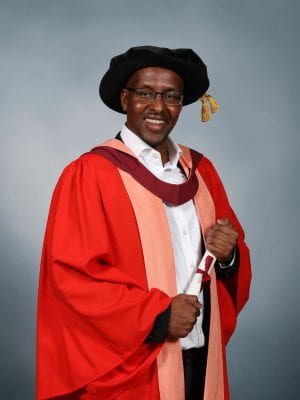
We were fortunate to speak with one of this year’s esteemed honorary graduates, Latif Ismail (MSc 2014, Hon LLD 2023), CEO of Transparency Solutions and Co-Director of Somali First. Somali First is a joint initiative of Transparency Solutions and the University of Bristol, launched in 2014 to promote Somali-led development through impartial facilitation, research and education.
Latif is also Managing Director of Horn Risk Management, Co-Investigator & Hub Leader of Transforming Education for Sustainable Futures.
Here, Latif shares his passion for locally-led development, his deep connections to the University and his advice for the next generation of global development professionals.
What drew you to study international security?
In the early 2000s Transparency Solutions was working with the Home Office and growing internationally towards East Africa. Piracy was becoming an issue in the Horn of Africa, and then in 2005 there were the London bombings. The UK government was grappling with what to do, and there was little understanding of that part of the world, especially in terms of radicalisation.
Transparency Solutions was approached by the Foreign Office, the Ministry of Defence and others seeking advice, and I realised development was seen through the lens of security. There’s a cliche in the security field: you need to have security to have development, and you need development to sustain security. The two are very much intertwined, but the cliché is true only some of the time. The opposite can be true – you can have development without security (indeed insecurity can drive development) and you don’t have to have development for security (indeed development can cause insecurity).
While I am from Somalia and have a lot of experience on the ground, I knew that I needed to learn more about international security theory. Years ago, I had done a degree in Development Studies at the University of East London, so I enrolled at Bristol to do a Master’s in International Security.

What led you to work in development in Somalia and Somaliland?
I always wanted to go back and better the region that I came from. Many development entities face corruption issues and need reform. Somalis working for the big NGOs in Somalia were also at a disadvantage – many NGOs thought that Somalis didn’t have the skills and couldn’t be trusted, assuming they had links to terrorist organisations, so they would hire internationals instead. This was a problem, so I decided to launch Transparency Solutions.
Somalia and the Horn of Africa need international friends, international expertise, international technology and international money. But ultimately, it’s Somalia’s problem to put its house in order. A big chunk of money from international aid goes to administration and security. Very little is seen by the people, and the plug is pulled the minute the funding ends. We need to invest in individuals and communities and give them the skills to solve the problems they face. Actually, they already have most of the solutions. They just need a bit of help here and there.
Transparency Solutions demonstrates that you can spend a fraction of the money typically spent by NGOs, and see huge results, all by working with Somali entities and Somali people. We are not a charity, we are a company run by social entrepreneurs. We have a lot of social responsibilities, but it isn’t an NGO. We are a Somali business and we are passionate about delivering social development through high quality knowledge-based services in research, training, strategy and project management in all sectors.

Why do you believe in Somali-led development?
Somalis are described as one of the most resilient people in the world, considering what we have been through. However, there is little global recognition of their skills. Somalia was the first democracy in Africa where a government lost an election and then left office peacefully. Before the war, we had very developed education and health. The economy was growing, but 35 years of war has destroyed all of that. People have a short memory, and only see Somalia through the lens of conflict and misery. Transparency Solutions challenges that narrative.
Could you tell me about Somali First?
Somali First is a strategic partnership between the University of Bristol and Transparency Solutions. It was born out of my partnership with Professor Eric Herring, a professor of World Politics. We focus on Somali-led development through impartial facilitation, research and education.
While the immediate goal of Somali First is to deliver specific projects, the bigger goal is to contribute to the transformation of the process of development in Somalia so that it is sustainable and locally led. This deeper purpose is what unifies our diverse projects, including projects in education, green computing, COVID-19 impacts and beyond.
Somali First is now an official University strategic priority and Transparency Solutions is official strategic partner. It’s a serious university affiliation that validates our work.
I can now say with my hand on my heart, I don’t think there are any other countries and universities in the world that have the kind of connection that the University of Bristol has with Somalia, Somalis, and maybe even the region as whole.
Our partnership allows us access to highly experienced students and staff to come and run research-oriented courses. Some of those students are now in very senior roles in my companies.
In March this year Pro-Vice Chancellor, Professor Agnes Nairn came to our headquarters in Hargeisa, where we have a dedicated workspace for University colleagues. The people are a highlight of our relationship, including Professor Herring, Professor Jaap Velthuis, who is a physicist, and Professor Leon Tikly, from the School of Education.
What does it mean to you to have received this honorary degree?
I’m really grateful to the colleagues who nominated me and to Bristol as an institution. It cements Transparency Solutions’ position as one of the most recognized development entities in Somalia. It’s another thing that can aid our work on the ground.

What is the best piece of advice you can offer those looking to work in global development?
I would really urge students to be abreast of what’s happening in the world. Travel and expose yourself to new things. It’s bigger than the UK. Humanity tends to focus on our differences and not so much on commonalities. To create a more just and equal society, you first need to understand what your fellow human beings are up against and try to empathise. At the University, many students are quite privileged, and that privilege also comes with responsibilities.

Latif Ismail is all most development education, Also supported other people, many times helping other teenagers and people
Latif my favorite man, really.
Sincerely,
Yahye Osman.